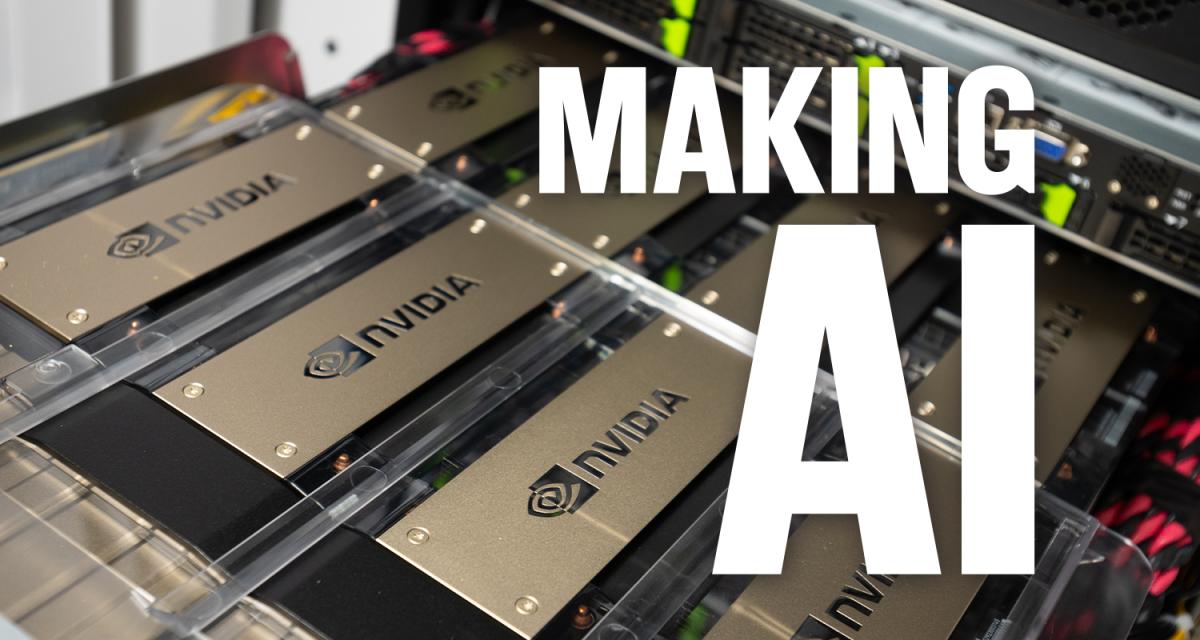
(text and background only visible when logged in)
A first-of-its-kind AI Makerspace created in collaboration with NVIDIA will give undergrads unprecedented access to supercomputing power for courses, projects, and their own innovations.
(text and background only visible when logged in)
The ability to create and harness advanced computing technology has ushered in an era of rapid problem-solving and advancement. It’s an exhilarating period for machine learning researchers like Ghassan AlRegib.
Students, however, have been largely left out — a limitation that’s long been on the mind of the School of Electrical and Computer Engineering (ECE) professor. Outside of research settings, students haven’t been able to access the transformative computing technology, leaving them no space to contribute to its future.
AlRegib has raised this question often with fellow faculty members and researchers.
“How can we guide students in addressing real, practical artificial intelligence problems that currently only find solutions within the confines of a laboratory — the solutions urgently sought by society?” he asked.
The College of Engineering now has an answer.
The Georgia Tech AI Makerspace is the nation’s first AI supercomputing hub dedicated exclusively to teaching students. The computing cluster provides a virtual gateway to the kind of high-performance computing environment typically prioritized for research. Students will use the hardware and software to tackle real-world AI challenges, develop advanced applications, and present their AI-driven ideas at scale.
The initiative, a collaboration with technology giant NVIDIA, expands on Georgia Tech’s foundational, theory-focused AI curriculum, deepening students’ AI skills and shaping the future generation of AI professionals.
“The launch of the AI Makerspace represents another milestone in Georgia Tech’s legacy of innovation and leadership in education,” said Raheem Beyah, dean and Southern Company Chair. “Thanks to NVIDIA’s advanced technology and expertise, our students at all levels have a path to make significant contributions and lead in the rapidly evolving field of AI.”
The first phase of the endeavor is powered by 20 NVIDIA H100-HGX servers housing 160 NVIDIA H100 GPUs, one of the most powerful computational accelerators available and capable of powering advanced AI and machine learning efforts. To put this computational power into perspective: a single H100 GPU can come up with a multiplication operation in one second that would take Georgia Tech’s 50,000 students 22 years to achieve.
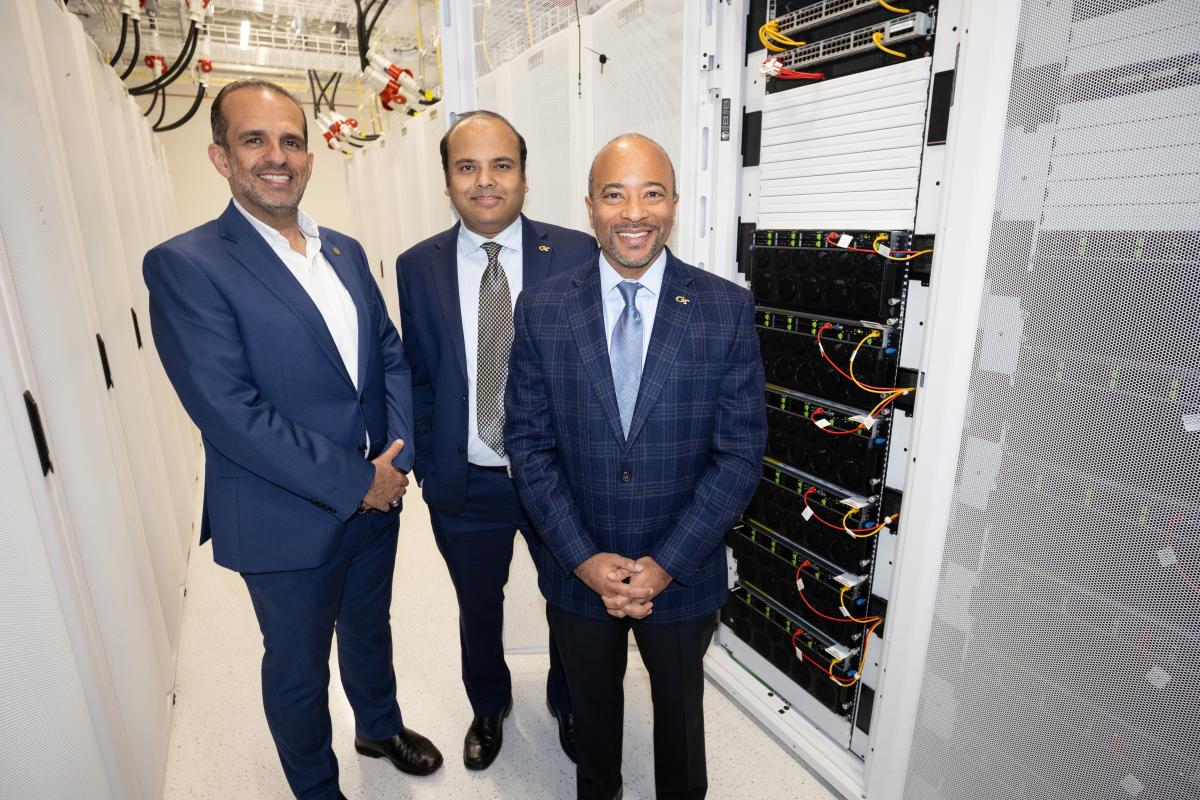
Ghassan AlRegib, Arijit Raychowdhury, and Raheem Beyah in the new AI Makerspace.
“The AI Makerspace represents a significant advancement in technology for education,” said Arijit Raychowdhury, professor and Steve W. Chaddick School Chair of ECE. “To draw a comparison, the makerspace will provide a technological upgrade equivalent to switching from an Etch A Sketch to an iPad.”
The effort is bolstered by Georgia Tech’s Partnership for an Advanced Computing Environment (PACE), which is providing sustainable leading-edge cyberinfrastructure and support, ensuring students have the necessary tools and assistance to best use the AI Makerspace cluster.
ECE undergrads began using the cluster this spring; all engineering students — including graduate students — will have access by the end of 2024.
Shortening the Post-College Ramp-Up
Raychowdhury estimated that the on-the-job learning curve for new AI systems professionals typically spans 12 to 24 months, primarily because they lack hands-on experience with heavy computing during college.
Shanmathi Selvamurugan, a second-year computer engineering major, entered her studies knowing she wanted to pursue research in machine learning, often tracking down Raychowdhury to express her interest in taking an applied approach.
“As a student interested in working with AI, I’m discouraged by my perceived lack of hands-on experience to qualify for AI jobs,” Shanmathi said. “Access to this level of computing will allow me to meet the demands of the job market and research community.”
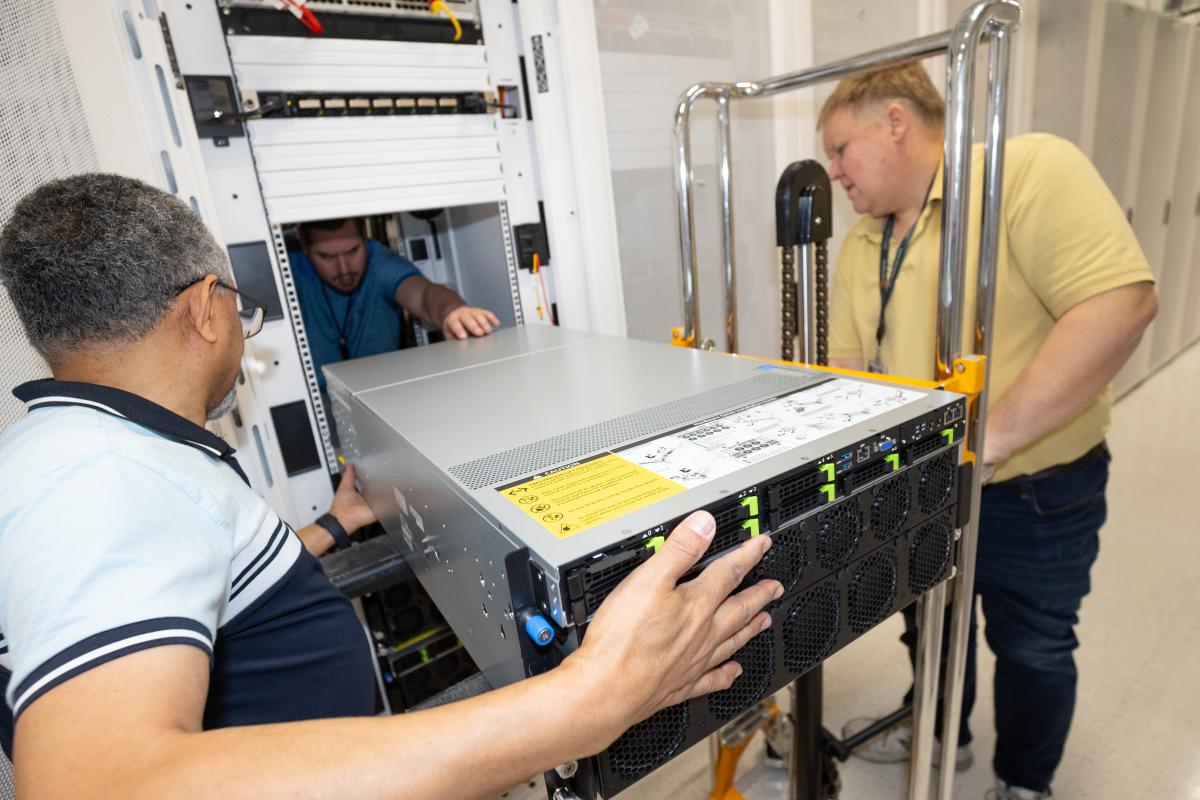
20 NVIDIA H100-HGX servers were installed for the first phase of the initiative.
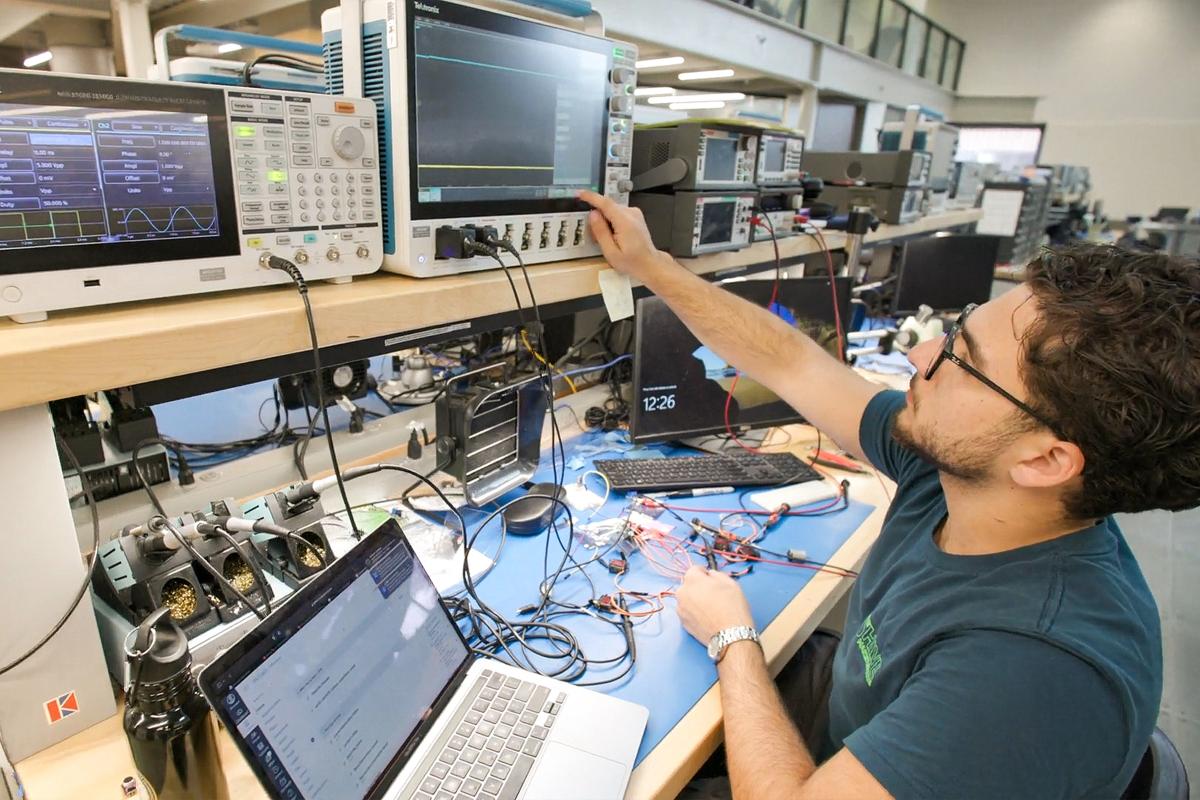
The AI Makerspace will give students hands-on experience and integrate with the College’s other makerspaces, including the Interdisciplinary Design Commons.
Ph.D. student Tyler Lizzo encountered similar limitations as an undergraduate. He wanted practical experience with AI but had limited options in advanced computing classes or research projects. He and his peers could work with faculty members to gain access to computing clusters dedicated to research on campus. Or they could choose to pay out of pocket for on-demand cloud computing platforms like Amazon Web Services.
“It was intimidating utilizing research resources on campus that logically weren’t made with students in mind,” said Lizzo, who finished his computer engineering bachelor’s in 2022 and now studies in Larry Heck’s ECE lab. “It also didn’t provide opportunities to explore or really learn from your mistakes, as the time was too valuable.
“I’m certainly excited, with maybe a touch of envy, for undergrads now having access to the AI Makerspace,” he added.
To break down the usability barrier students may face with the makerspace, PACE and AlRegib are developing interfaces and strategies to ensure that students from all backgrounds, disciplines, and proficiency levels can effectively use the computing power.
Cultivating a workforce equipped with advanced AI skills is essential to ensuring our nation’s resilience and adaptability. Georgia Tech students will be leading the charge.
ARIJIT RAYCHOWDHURY
Steve W. Chaddick Chair, School of Electrical and Computer Engineering
“The intelligent system will serve as a tutor and facilitator,” said AlRegib, the John and Marilu McCarty Chair of Electrical Engineering. “It will be the lens through which students can tap into the world of AI, and it will empower them by removing any hurdle that stands in the way of them testing their ideas. It will also facilitate the integration of the AI Makerspace into existing classes.”
“Democratizing AI is not just about giving students access to a large pool of GPU resources,” said Didier Contis, executive director of academic technology, innovation, and research computing for the Office of Information Technology. “Deep collaboration with instructors is required to develop different solutions to empower students to use the resources easily without necessarily having to master specific aspects of AI or the underlying infrastructure.”
This framework designed to provide easy entry to the AI Makerspace opens an entirely new way to teach AI — one where theory and application can be taught in unison. After all, that’s how students will encounter AI in their careers. And it couldn’t have come at a better time.
In a 2023 World Economic Forum report, more than 85% of employers identified increased adoption of new technologies and broadening digital access as the trends most likely to drive transformation in their organization. Additionally, many of the fastest growing jobs are technology-related roles, with AI and machine learning specialists topping the list.
“The global AI talent pool is expanding rapidly. Cultivating a workforce equipped with advanced AI skills is essential to ensuring our nation’s resilience and adaptability,” Raychowdhury said. “Georgia Tech students will be leading the charge, which is incredibly exciting for the evolution of AI education and innovation.”
(text and background only visible when logged in)
(text and background only visible when logged in)
Related Stories
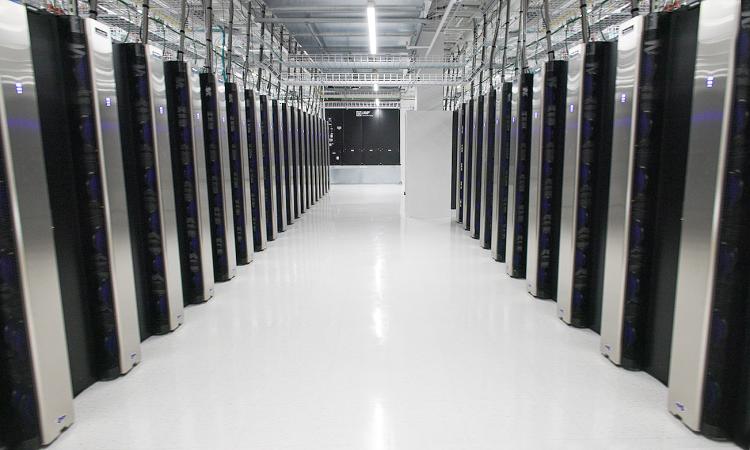
AI for Engineering
The AI for Engineering initiative aims to ensure that the College’s graduates are well-versed in artificial intelligence principles and ready to enter an AI-native workforce.
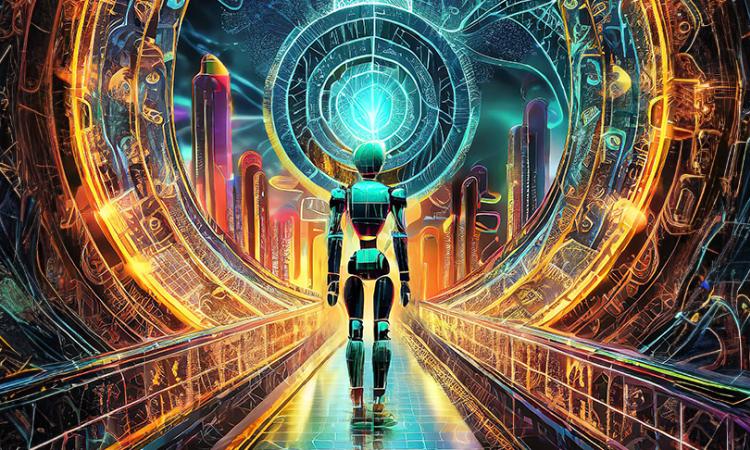
What IS Artificial Intelligence?
Engineers working in machine learning and AI offer a crash course in the basic concepts and buzzwords that have moved from the lab to everyday life.
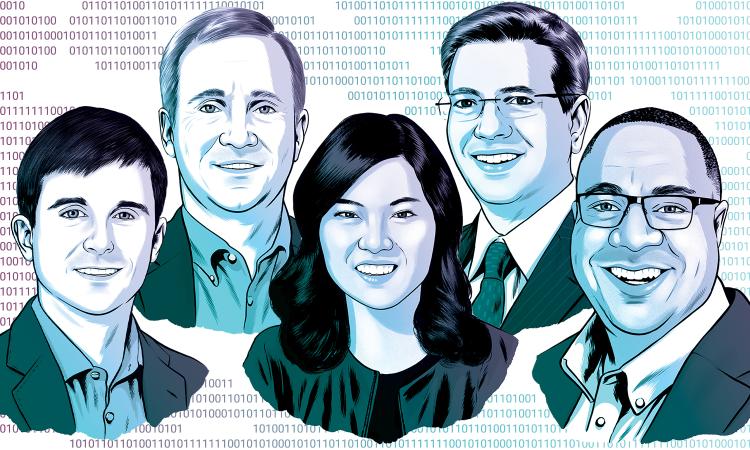
AI Beyond Campus
Corporate leaders with ties to the College describe AI in their current roles, what will happen in the next five years, and how students and professionals will need to adapt.
(text and background only visible when logged in)
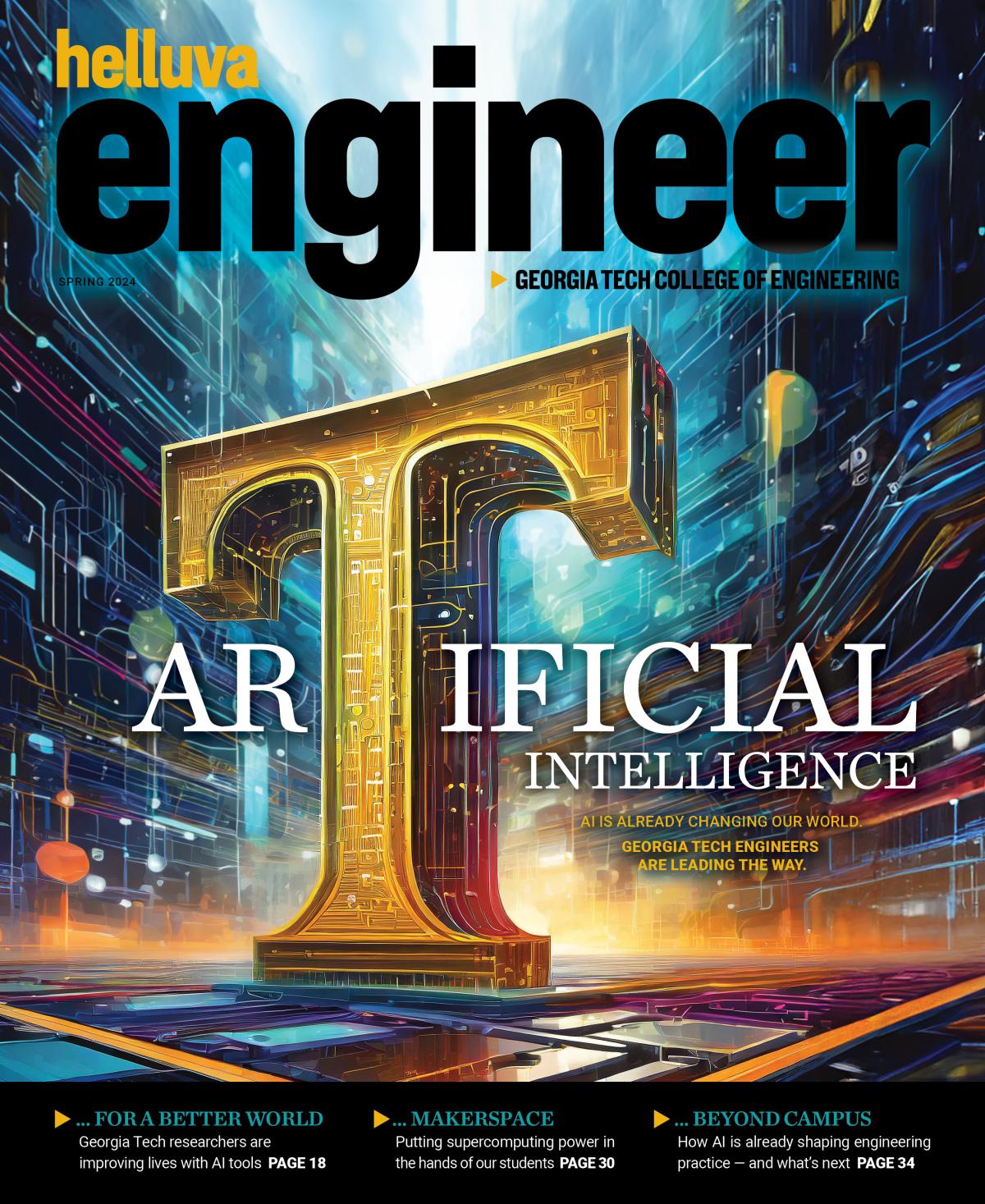
Helluva Engineer
This story originally appeared in the Spring 2024 issue of Helluva Engineer magazine.
Georgia Tech engineers are using artificial intelligence to make roads and rivers safer, restore or boost human function, and enhance the practice of engineering. We’re building the technology and infrastructure to power tomorrow’s AI tools. And we’re giving our students the AI courses and supercomputing power they need to be ready. AI is changing our world, and Georgia Tech engineers are leading the way.